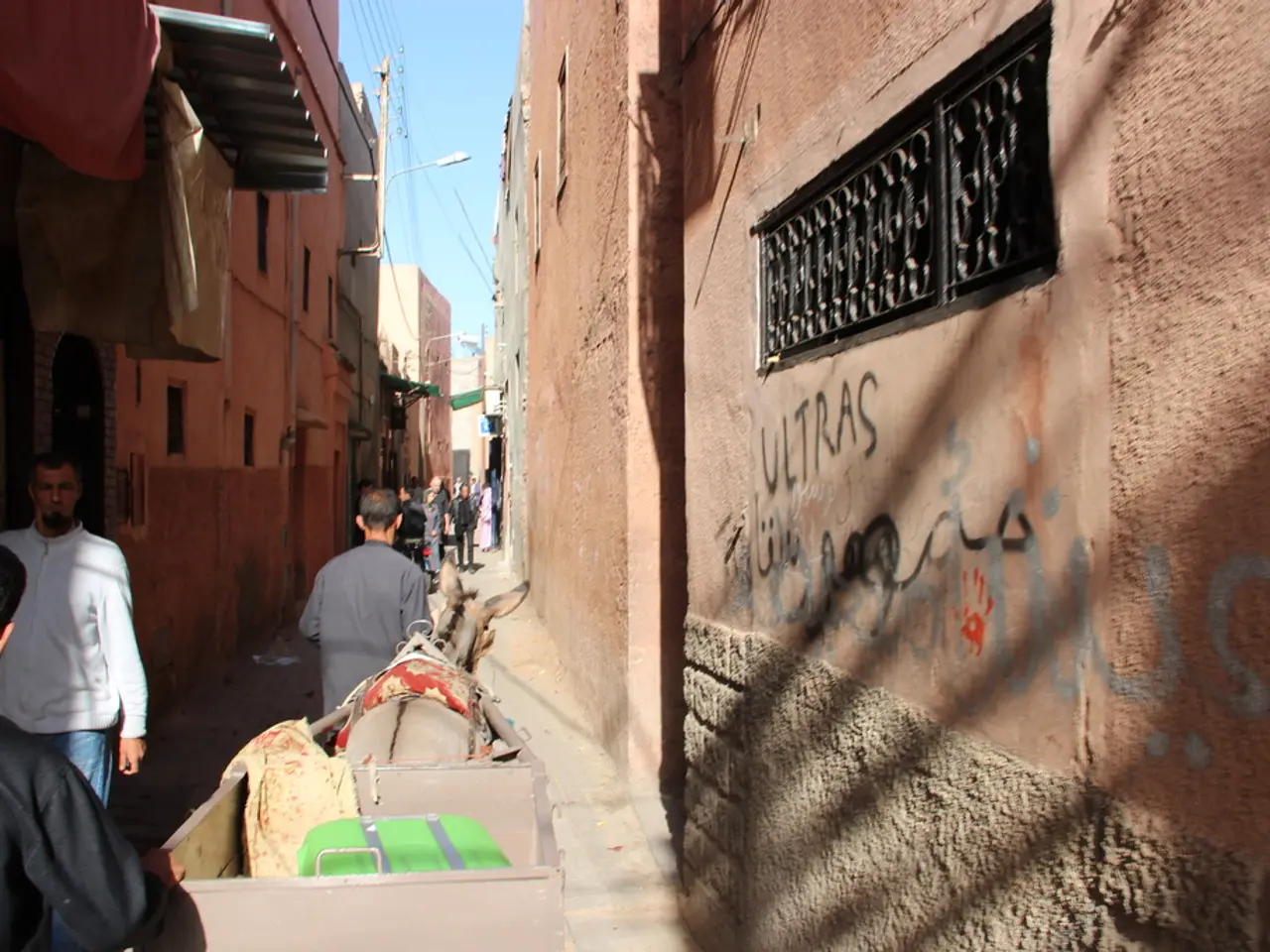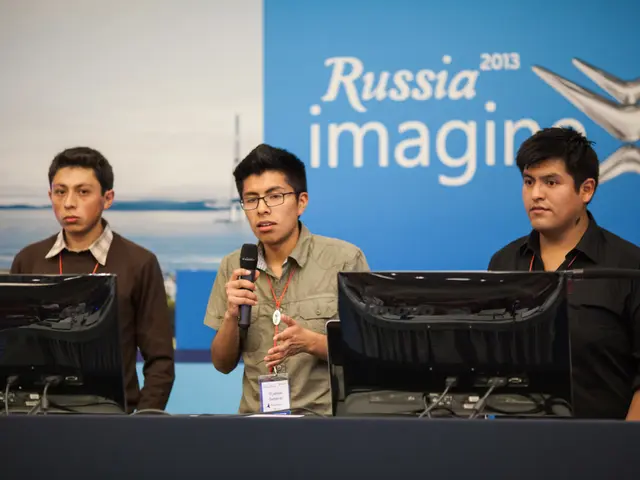International Assembly Focuses on Gaza's Future and Palestinian Issues
The United Nations General Assembly is set to witness a significant gathering, with Syria's President Ahmed al-Sharaa joining as a prominent new addition. This assembly, co-chaired by Saudi Arabia and France, will focus on finding a solution to the Israeli-Palestinian conflict, with the two-state solution high on the agenda.
In a move that could potentially shake the status quo, the French presidency has announced that 10 countries will formally recognize Palestinian statehood. This recognition, described as a 'symbolic' gesture by analyst Richard Gowan from the International Crisis Group, comes at a time when around 150 UN member states already officially recognize Palestine as a sovereign state.
However, the road to peace is not without its challenges. The humanitarian catastrophe in the Palestinian territory remains a major concern, and Gowan has warned of potential Israeli reprisals and a risk of escalation by Israeli Prime Minister Benjamin Netanyahu.
The gathering also comes at a time when the United Nations is facing a deep financial crisis and criticism of its efficacy. This is a concern that has not been lost on UN Secretary-General Antonio Guterres, who has called for progress on Gaza, Ukraine, Sudan, and climate change.
Climate change is indeed a pressing issue, and Guterres and Brazil's Lula will organize a climate summit on Wednesday where some states may announce new goals to reduce greenhouse gas emissions, just weeks ahead of COP30 in Brazil.
The Israeli offensive in the Gaza Strip, which began two years ago, is another issue that will undoubtedly be discussed. Mahmud Abbas, the Palestinian president, has been denied a visa to attend the gathering, but several countries are expected to formally recognize a Palestinian state at the meeting.
The gathering will also see the participation of key world leaders, including Ukrainian President Volodymyr Zelensky, Brazil's Luiz Inacio Lula da Silva, and Iranian President Masoud Pezeshkian. The Iranian nuclear program is expected to be a focus, as sanctions against Tehran, lifted 10 years ago, are set to be reinstated.
The meeting also serves as a platform for discussing the state of the multilateral system. Federico Borello, Interim Executive Director at Human Rights Watch, states that the system is under an existential threat due to serious violations of international humanitarian law in Gaza, Ukraine, and elsewhere, committed or facilitated by powerful states including permanent members of the Security Council.
President Donald Trump's significant cuts to US foreign aid since his return to the White House are another factor that could impact the discussions at the gathering. As the world grapples with various challenges, the need for actions that match the gravity of the challenges and meet the expectations of all those on the outside looking in is more pressing than ever.
Read also:
- United States tariffs pose a threat to India, necessitating the recruitment of adept negotiators or strategists, similar to those who had influenced Trump's decisions.
- Weekly happenings in the German Federal Parliament (Bundestag)
- Southwest region's most popular posts, accompanied by an inquiry:
- Discussion between Putin and Trump in Alaska could potentially overshadow Ukraine's concerns







